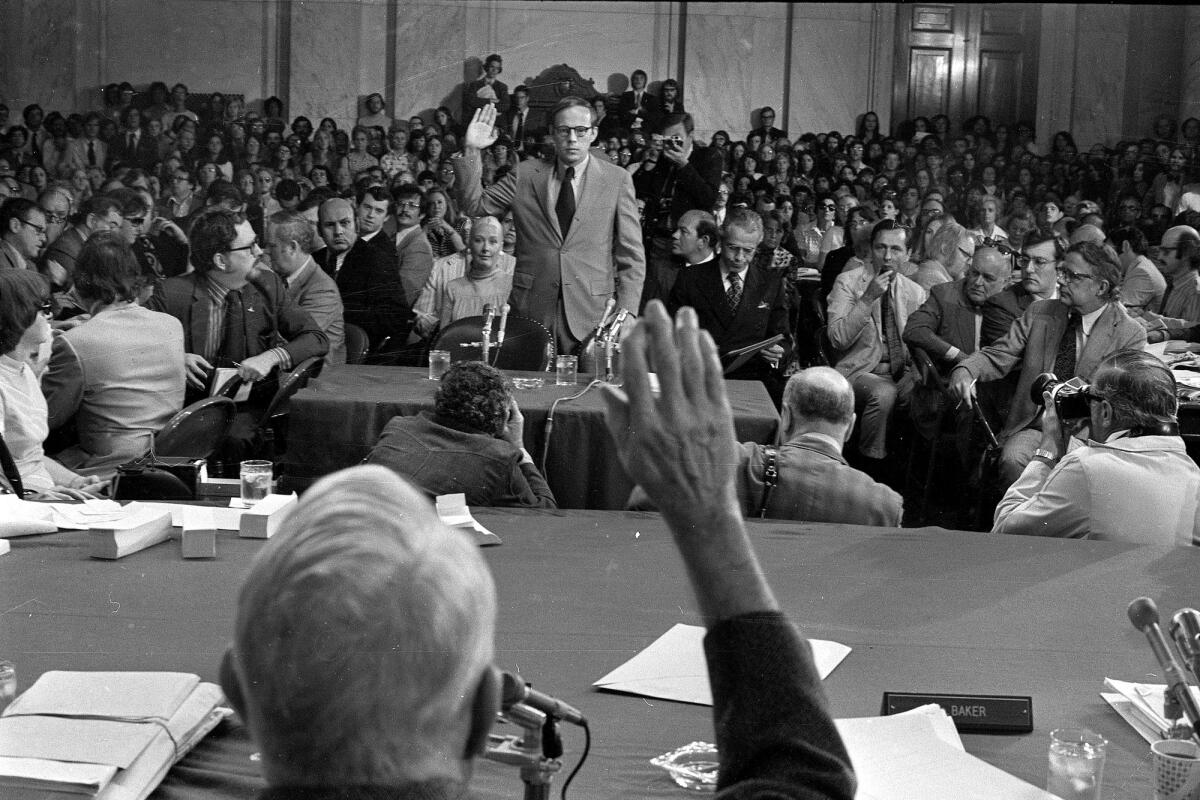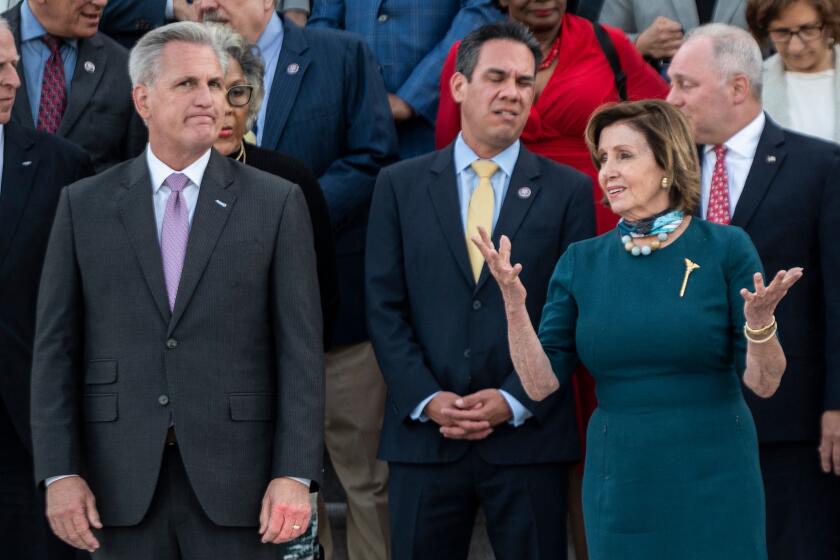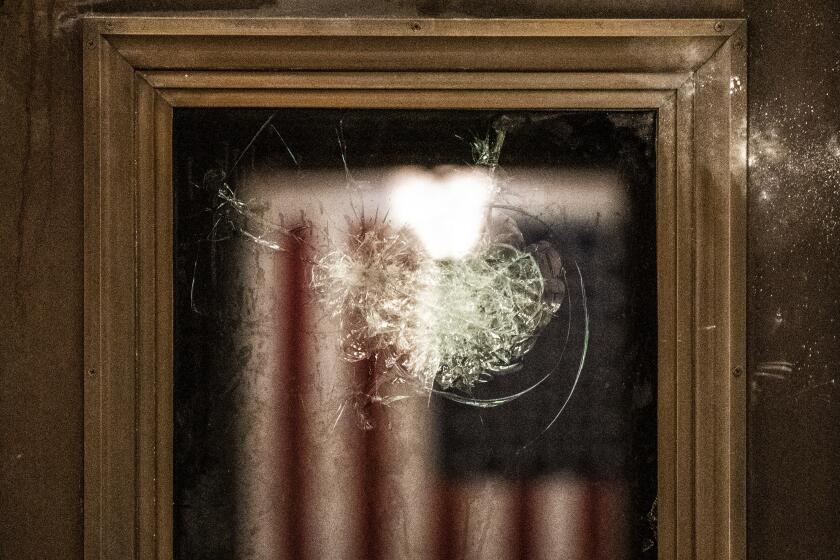Column: Why the Jan. 6 hearings have a harder road ahead than the Watergate hearings ever did

- Share via
The hearings of the Jan. 6 House select committee that will begin Thursday night will surely be compared with the celebrated 1973 Watergate hearings that brought down President Nixon. And they do have some important similarities. But the differences between the two events are far more marked, and they point to a set of significant challenges the Jan. 6 committee is facing to achieve anything close to the short-term political and long-term historic achievement of the Watergate inquiry.
The Watergate hearings grew out of the break-in at the Democratic Party offices on June 17, 1972, 50 years ago next week. Initially dismissed by the White House as a “third-rate burglary,” the break-in led to the unraveling of the entire Nixon administration.
The hearings by the Senate Select Watergate committee began the following May. There were 51 days in all, each spanning several hours, over a six-month stretch. White House Counsel John Dean alone spent two days reading his written testimony to the committee. The three networks all had some regular coverage, and the hearings were replayed in full on PBS every evening.
Was Nancy Pelosi right or wrong last year when she refused to seat two Republicans on the committee investigating the events at the U.S. Capitol?
In the end, the hearings were a huge success, in real time and in history. They produced several sensational revelations — especially the existence of the White House taping system — made household figures of a number of previously obscure figures such as Dean, and produced a chronicle of the Nixon administration’s malfeasance that history fully adopted. And when they ended, Nixon was severely damaged politically and on Aug. 9, 1974, would become the first and only president to resign his office.
By contrast, the Jan. 6 committee starts with a far weaker hand that will make it very hard even to approach the effectiveness of the Watergate hearings.
For starters, the Watergate Committee was truly bipartisan, starting at the top with Republican Sen. Howard Baker of Tennessee as vice chairman, second in command to the committee’s chairman, Sen. Sam Ervin of North Carolina, a conservative Democrat. That brought a measure of public confidence in the proceedings.
For the Jan. 6 committee, the Republican leadership chose from the start not to participate. The reason, of course, was to deny the committee the kind of legitimacy and public confidence that the Watergate committee enjoyed. So while the Jan. 6 committee has two Republicans — Liz Cheney of Wyoming and Adam Kinzinger of Illinois — it will be dismissed by Fox News and right-wing media as a partisan kangaroo court.
Fox News, the most watched cable network in the country, has already announced that it will not televise the hearings in full. That will spare it some embarrassment since the evidence to be presented at the hearings includes cozy counsel from Tucker Carlson and its marquee names directly to the White House.
But the Republicans won’t really be sitting out the hearings. Rather, they will be on the sideline doing their best to undermine them. They have an actual playbook of talking points to vilify the hearings in real time. Imagine Howard Baker, rather than helping to lead the Watergate committee hearings, had led his party in an effort to paint Watergate as a trivial affair and the committee an out-of-control illegitimate body.
Next, the Jan. 6 committee faces time pressures unlike anything the Watergate committee contended with. The Watergate hearings were leisurely, long-winded sessions, punctuated with historic revelations such as the almost throwaway line from Alexander Butterfield revealing the existence of the White House tapes.
What is required on the anniversary of Jan. 6 is nothing less than a national awakening.
The Jan. 6 committee has no such luxury. It must deliver a far more complicated and broad-ranging set of facts in six 90 to 120-minute presentations choreographed to the second. Even then, the networks have declined the committee’s request for full prime-time coverage, so some of the hearings will be in the morning.
This means the proceedings have to be more risk-averse, yet also more lively than the Watergate hearings. A misstep could turn in to the centerpiece of the media coverage, while a boring stretch could make the public, already suffering from Jan. 6 fatigue, tune out.
Finally, the witnesses called to testify by the Watergate committee showed up, even though some asserted a 5th Amendment right to remain silent. By contrast, the Jan. 6 committee is hobbled by the brazen and unlawful contempt of several of the most important witnesses who have simply refused to cooperate while contending the investigation is illegitimate.
All of these deficits are more than a shame; they are a scandal.
They are rooted in the cynical Republican stance that the post-election efforts to throw out the votes and hijack the republic — apparently orchestrated by a group of Donald Trump’s allies and encouraged or even abetted by Trump himself — were of no significance, rather than the most serious assault on democratic rule since the Civil War.
In the course of the hearings, the Jan. 6 committee will offer the public a “mountain of evidence,” as Rep. Jamie Raskin (D-Md.) put it, having interviewed more than 1,000 witnesses and obtained countless documents. It also is the most organized and competent investigative committee in congressional history.
It will certainly deliver a compelling narrative of the most severe constitutional violations in the history of the presidency. But the stars will have to align perfectly for its work to obtain the broad public acceptance and historical endorsement that are the legacy of the Watergate committee.
More to Read
A cure for the common opinion
Get thought-provoking perspectives with our weekly newsletter.
You may occasionally receive promotional content from the Los Angeles Times.













